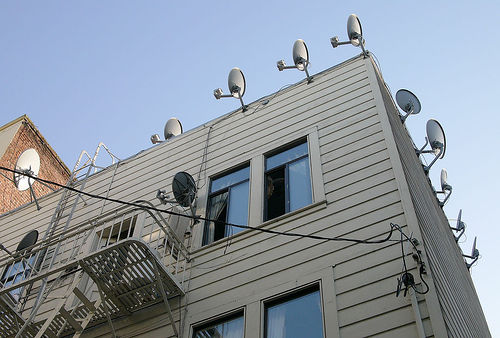Congress Passes Five-Year Satellite Act

Provisions ease distant-signal qualifications...
WASHINGTON: Congress today passed the Satellite Television Extension and Localism Act of 2010 on voice vote. The bill changes how households qualify for outside-market TV signals carried by direct broadcast satellite providers. DBS operators generally could carry these distant-signal to households unable to receive in-market TV stations over the air. The new law loosens how to determine which households fall into that category.
The bill, S.3333, eliminates Grade B bleed--essentially poor reception of a local station--meaning more households will qualify for distant signals. It also allows households predicted to fall outside of a Longley-Rice reception area to qualify, according to David Kushner of the Raleigh, N.C. offices of Brooks, Pierce, McLendon, Humphrey & Leonard LLP.
“This change gives satellite carriers two bites at the apple, so to speak, and, again, expands the scope of the satellite distant signal license and diminishes program exclusivity for local affiliates,” Kushner wrote in a paper presented at the NAB Show last month.
S.3333 extends the distant-signal provision through Dec. 31, 2014. The Senate passed likewise legislation May 7, after earlier passing a standalone bill extending the satellite law for 10 years. The five-year version won out and is on the way to the White House.
The legislation accommodates the digital transition, multicast feeds and noncommercial HD stations. It directs DBS providers to provide local broadcast signals in all 210 TV markets. In return, it lifts a court injunction on Dish Network preventing it from carrying distant signals.
It also fixes the cable “phantom signal” issue, when a cable operator carries a particular TV signal in only part of its service area, but must pay royalties for the entire area. The bill raises royalty rates to make copyright holders whole, Kushner said.
Sen. Patrick Leahy (D-Vt.) described how his constituency would be effected.
“The legislation includes a provision that will particularly benefit Vermont satellite television customers in Vermont’s southern-most counties, allowing Dish Network viewers, like DirecTV viewers, to receive Vermont broadcast stations by satellite,” he said in a statement. “In addition, the legislation solves the so-called ‘cable phantom signal’ problem which, if left unaddressed, would lead to higher prices and fewer regional stations for Vermont cable customers. In northern Vermont, for example, this provision will make it possible for Comcast subscribers to continue to receive Hockey Night in Canada, which otherwise may not have remained available.”
Dish issued the following statement regarding the passage of STELA,
“Dish Network congratulates Congress on passing the landmark Satellite Television Extension and Localism Act of 2010, clearing the way for Dish Network to become the first pay-TV provider to make local broadcast stations available in every television market in the United States.”
The entire text of the bill is available at the Government Printing Office.
-- Deborah D. McAdams
Get the TV Tech Newsletter
The professional video industry's #1 source for news, trends and product and tech information. Sign up below.
